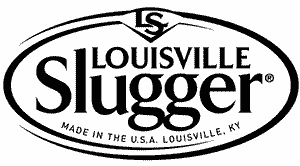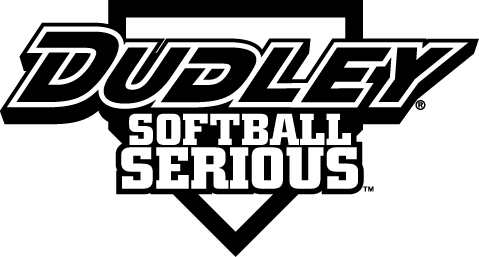Message board »Message Board home »Sign-in or register to get started
Online now: 2 members: Andy215, TABLE SETTER 11; 198 anonymousDiscussion: Penalty for offensive intereference
| Posted | Discussion |
| Jan. 26, 2017 Steve in Tucson Men's 70 22 posts | Penalty for offensive intereference I have a few interference situations to review: 1: Runner on first base interferes with the defensive player attempting to double the batter-runner off at first after tagging second base before the runner arrives at the base. Who is out on the play - obviously, the runner going to second - but is the batter-runner declared out at first, or, if there is a runner on second and/or third at the beginning of the play is the runner closest to home called out instead of the batter-runner? 2: What situations have to occur for the runner closest to home to be called out? In these situations is there a difference in penalties between accidental and intentional interference? Finally, what rules cover these penalties? I would like to share them with my umpiring crew. As always, if you need more clarification of my questions, please let me know. Thank you. |
| Jan. 27, 2017 B.J. 1105 posts | interference is a judgement call by the umpire... If he calls it the player that interfered is out and then if in the judgement of the umpire there could have been a double play the runner closest to scoring is called out....below is the rule but it does not describe where the 2nd out should be called.... maybe STAFF could help out on this?? 8.6 • WHEN SLIDING IS OPTIONAL - AVOIDING COLLISIONS Sliding or diving into first base or the scoring line or scoring plate is permitted only to avoid a collision with a defensive player. This is an umpire’s judgment call and is not subject to protest or appeal. A player may slide or dive into second or third bases, or when returning to any base. A runner must make every effort to avoid colliding with opposing players while running the bases or sliding or diving. If in the umpire's judgment a runner misses a base to avoid a collision, the runner will not be called out. If in the umpire’s judgment the runner fails to avoid a collision with a defensive player involved in the play, the ball will be declared dead and that runner called out. All base runners except the batter will be returned to their previous base unless forced to advance. If in the umpire’s judgment the runner's collision with the defensive player involved in the play negates a double play, the umpire may award a second out. |
| Jan. 27, 2017 stick8 1991 posts | 1) I'd have to see the play but from your description I have a dead ball double play 2) Had a play in a local tourney: first and third, no outs. Line drive to short.(one out) Runner at first was caught off the bag. Upon the throw from short the runner intentionally deflects the ball (obstruction, dead ball out-two outs) By rule Runner closest to home is also out (three outs) For an example Google Reggie Jackson 1977 (or 1978) World Series obstruction play. It's a perfect illustration of a blown call In my humble opinion of course |
| Jan. 27, 2017 lb16 Men's 60 196 posts | stick8 in my opinion your call was incorrect. You are rewarding defense with a triple play when most likely the outcome would not have ended that way without the interference. It should be the umpires judgement on what would have happened if not for the interference most likely double play. Batter out on ld runner closet to home out for interference by 1b runner. 2 outs runner on 1st is the correct call in my opinion. i know you are going to say the runner on 1st would have been out if not for the interference you are correct but the penalty for the offense is the runner closest to home is out. Same scenario yet it is a ground ball hit ti ss runner going to 2nd interferes with throw to 1st. You would not call both runner going to 1st and runner on 3rd out for a triple play you would call runner on 2nd out runner on 3rd out for interference batter on 1st 2 outs. |
| Jan. 27, 2017 Duke Men's 65 908 posts | The rule B.J. quoted is self explanatory. Runners on 1B and 3B and there is interference called on the runner from 1B to 2B, and in the umpire's opinion it negated the double play, then dead ball out, double play, and runner that scored, goes back to 3B, unless he was forced to go, which means the bases were loaded. Now, if you change the situation a bit, the outcome could be different. Same original setup as above, but the shortstop or second baseman field the ball and the out is recorded at 2B and interference is called with the runner from 1B going to 2B, but the shortstop or second baseman is clearly throwing home for the double play and would have had the runner out at home. How many times have you seen that occur? In that situation, I would call the runner out at 2B and home, and the batter is safe. That is not covered by the rule that B.J. quoted, unless there is more to that rule. That is the way I would call it. I did not look it up, but I could be wrong on the second situation? JMHO, Andy Smith |
| Jan. 27, 2017 Steve in Tucson Men's 70 22 posts | I look forward to STAFF's help on this one. Umpire's judgments can always lead to "discussions" and we don't have a problem with that - we make the call and move on. But that's not the issue here. One of my umpires is an ex-lawyer and difficult to convince that in situation one the runner closest to home is out - he believes it's the batter-runner who's out at first and is looking for some documentation. Rule 8.6 is a start but, unfortunately, doesn't address the basic question raised by my "ex-lawyer umpire". He will take SSUSA STAFF word if it's not written out some place. I just need something to reference when I make my reply to him and my umpiring crew. OK, I know that's my problem, but any help I can get will help me explain this situation and make everyone more comfortable with the explanation. Thanks to all for your input. This has become a more interesting discussion than I expected! |
| Jan. 27, 2017 HAT MAN Men's 50 229 posts | Steve sounds to me that you are in charge. Or in this guys case THE JUDGE! If he wont take your word for it hold him in contempt. Meaning if he continues to be argumentative suspend him from playing. |
| Jan. 27, 2017 B94 Men's 50 138 posts | I believe the only way the runner closest to the plate is ruled out if it is deemed to be "intentional" interference which is still a judgement call by the umpire... |
| Jan. 27, 2017 B.J. 1105 posts | usually when I cant find a ruling in the SSUSA book I refer to ASA rule book because it gives a more thorough description of the rules....as I posted above runner who interfered is out and runner closest to home would be out if in the umpires judgement a double play could have been made RULE 8 - BATTER-RUNNER AND RUNNER Section 7. THE RUNNER IS OUT. P. When, after being declared out or after scoring, an offensive player interferes with a defensive player’s opportunity to make a play on another runner. EFFECT: The ball is dead. The runner closest to home plate at the time of the interference is out. All runners not out must return to the last base touched at the time of the interference. |
| Jan. 27, 2017 stick8 1991 posts | lb16 I stand corrected, you are correct. In the scenario the runner committing the act of obstruction would be out and the runner who started out closest to home would be out. Thank you for correctly pointing that out. |
| Jan. 27, 2017 Steve in Tucson Men's 70 22 posts | Thanks to all for your input and council. You all were a big help to me. I'll take it from here. |














